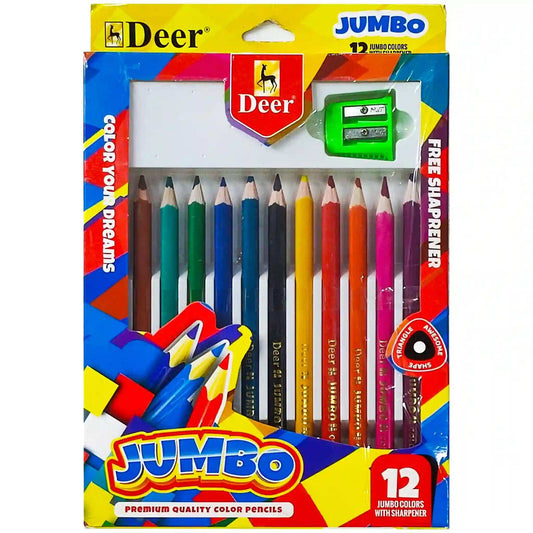In today’s digital age, where distractions are abundant, cultivating the habit of reading can be a challenge. However, the benefits of reading are undeniable, making it essential to develop a lifelong love of books that you can get on our online book depot. In this article, we will discuss practical tips to help you cultivate the reading habit and enjoy the countless rewards that come with it.
How to Develop Good Reading Habits for Personal Growth and relaxation.
Family is the place to nurture and preserve the country’s cultural traditions, including the reading culture. To develop the reading culture in the family, parents should encourage reading habits among their children. To nurture their love for books, parents should place books around the house.
Forbes - a famous German educator once said that the destiny of a nation lies in the hands of mothers. That saying emphasizes the role of parents in educating the future talents of the country.
Therefore, parents hold an important position in forming and developing reading habits among their children by starting from school learning books. First of all, parents need to be aware of the necessity and value of reading, in order to inspire the love of books among their children.
is letting children have close contact with books regularly. Parents should provide their children with lots of books, so that books can fill every room in the house.
To develop the reading habits culture of the whole country, joint efforts from people, agencies, organizations, and the government are needed.
Developing a reading culture is a big problem that takes time to be solved, but as long as each person is aware of the necessity of reading, we will definitely nail it.
Cultivating Curious Minds: Ways to model good reading habits for children and Busy People
In an age of digital distractions and instant gratification, nurturing a love for reading in children can feel like an uphill battle. But the benefits of fostering a reading habit, especially English novels, are immeasurable, enriching their lives with knowledge, imagination, and a lifelong love of learning. One of the most potent tools in your arsenal is completely free: the power of modeling.
Simply put, modeling means demonstrating the value and joy we find in reading through our actions. It’s not about lectures or forced bedtime stories; it’s about making reading an integral part of our daily lives, a natural event woven into the fabric of family routine. And the impact on our children’s literacy development is profound.
Why Modeling Matters
Children are observant and reading habits are important. They absorb the behaviors and attitudes they witness around them. When they see the important people in their lives prioritize reading for enjoyment, books like see you at the top novel , it sends a powerful message: “Reading is valuable, engaging, and something worth devoting time to.” This modeling becomes the cornerstone for their own reading journey, shaping their perception of books as gateways to adventure, knowledge, and self-discovery.
Modeling reading accomplishes four things:
-
Seeds a love for learning
Seeing others dive into books sends a clear message: reading isn’t a chore. It’s an adventure. It’s fun! This intrinsic motivation paves the way for lifelong learning and exploration.
-
Boosts language skills
Our vocal inflections, emotional engagement, and discussions about the text naturally expose children to rich vocabulary, different sentence structures, and critical thinking skills. This immersive experience enhances their own understanding and expression.
-
Sparks curiosity and imagination
By sharing our own reading interests and reading habits, we open doors to new worlds and ignite their curiosity. Whether it’s a beloved classic, a fantastical children’s tale, or a book that rhymes, we model how reading expands our horizons and fuels creativity.
-
Strengthens bonds and creates memories
Curling up with a book together fosters a cozy intimacy. Discussing characters, predicting plot twists, and laughing over shared jokes from memories that bind families. Reading becomes a shared activity.
Here are 5 tips for how to develop a reading habit at home:
I obviously want everybody to read more. Reading has transformed my life in an insane number of ways, and I couldn’t be more thankful that it’s a thing I’ve made a habit of doing.
In reading habits every situation is different. Every life is different. Every reading mind is different, some like Urdu poetries the most. I could tell you to throw your phone out the window (which I will) and tell you to read different genres at once because your tastes/times will differ from moment to moment (which I will), but damn, man—reading is about giving yourself time and that’s pretty much it.
-
Separate yourself from your phone
I don’t know your lifestyle, but I do know that most of you have access to instant gratification that you can choose over reading.
Twitter. Instagram. Facebook. YouTube. Reddit. Netflix. It’s difficult to stay away when we feel like we might miss something.
I’m NOT telling you to stop that.
It’s pretty damn hard to develop reading habits, and I’ll be the first to admit I don’t do as well as I’d like to. But for reading time, I have learned to do a much better job of leaving the internet behind.
When cracking open a book, I implore you to separate yourself from the internet and start reading Dictionary books to have an impact. Leave it on the other side of the room. Go outside and don’t bring the phone with you. Go to a different room.
When it’s away from you, it requires an extra walk-of-shame-style task for you to give yourself that brain break you tell yourself you need at the end of another paragraph, section, or chapter break. If you need the dictionary, get your phone (or a dictionary, obviously) and just promise me you’ll be back as soon as you can.
-
Read a variety of different types of books at the same time
This one may sound a little loopy if you’re not already a “reader,” but trust me, you’re not always going to want to dive into a big meaty chapter if you don’t have the time for it, so starts your reading habits from today.
Sometimes, you’re going to want to dip your toe in regardless of if you’re able to finish the chapter or not.
This is where nonfiction comes in handy for me. It’s often easy to dive into nonfiction books without the commitment of a full chapter. It’s also easier to stop in the middle of a paragraph and resume it without having to reread too much the next time I pick it up.
Because of this, I like to have a slew of different style books at the ready.
-
Stop reading books that aren’t inspiring you
This is a controversial take and everyone’s opinion is different in reading habits, so if you see what I’m saying and think, “Joe, kindly kick yourself in the pants,” that’s fine, but hear me out:
A thing about books is that they take the same amount of time to read whether you don’t like it at all or if it changes your life forever.
So give that book you bought a shot, especially if “it ends with us” novel . No doubt. Maybe even keep reading on if you still have hope for it moving forward. But when you feel uninterested in returning to it, don’t return to it. You could be reading something that actually alters your worldview for the better, and you can always return to that book you gave up on later if you really want to.
There is one caveat though: you have to finish some books. I’m confident you will if you keep making time for reading habits, but if you are someone whose habit has become reading the first chapter and then abandoning your last ten books, well then maybe you need to finish that next one that you’re digging. You’d be surprised at how awesome books are when you get the chance to see the full picture.
-
Be patient with yourself
I get paid to read, and I’m still slow at it. Some brains just work that way. And you better believe that when you jump into reading after not having done it in a while, you’re going to move through the pages slowly and you might have to reread some things.
You know what you should do in that case?
Go slow.
For developing reading habits recognize that all you can do is read one word after the other.
As long as you aim to understand what’s on the page and not just move through it to get it done, you’re going to exit this reading experience one book stronger than when you came in.
Conclusion
Be patient, focus on creating a positive and enjoyable reading environment, and celebrate your child’s unique reading journey. In their hands, a book becomes a passport to adventure, a companion in times of solitude, a way to process feelings and emotions, and windows into other perspectives and cultures.









